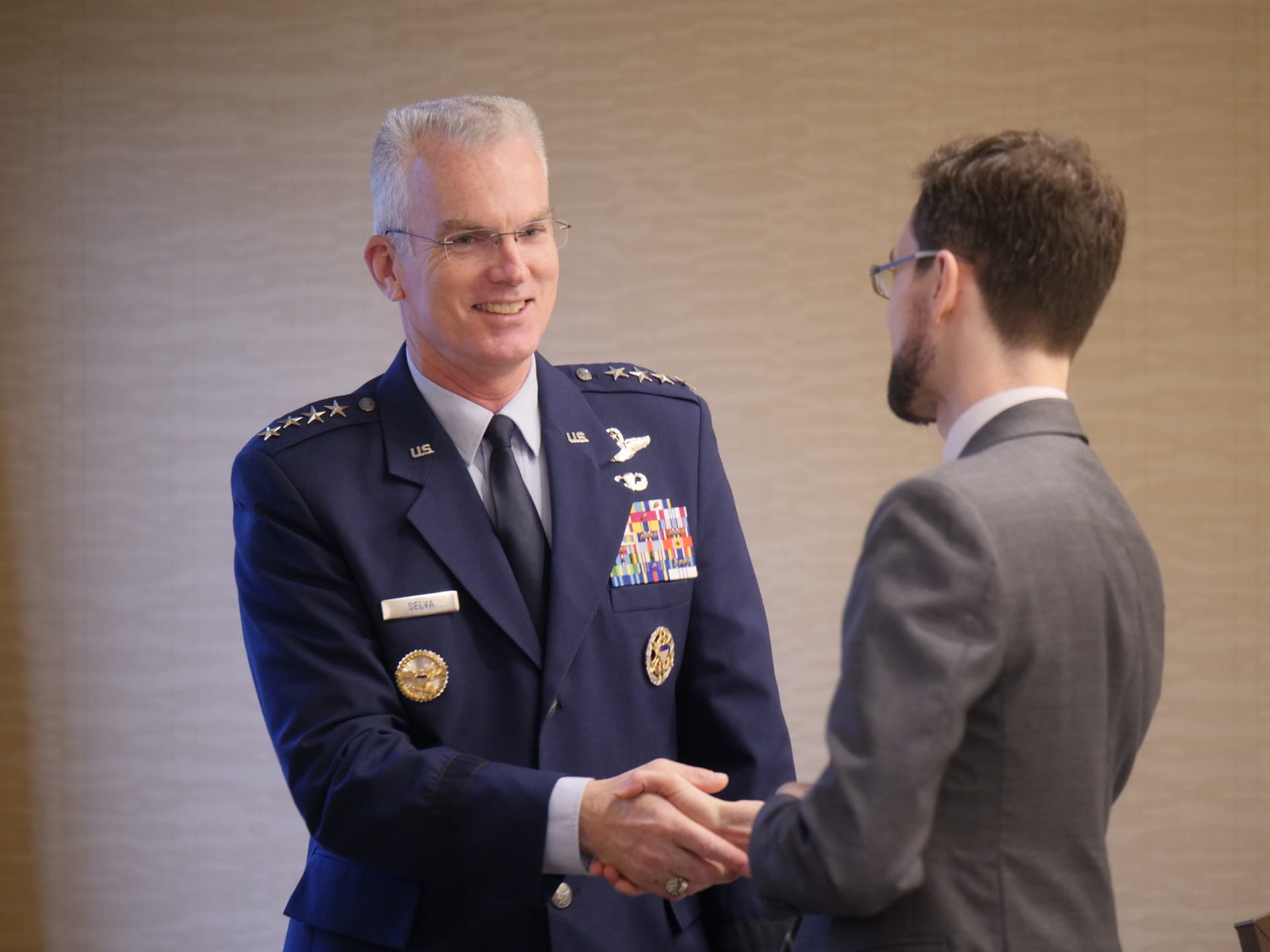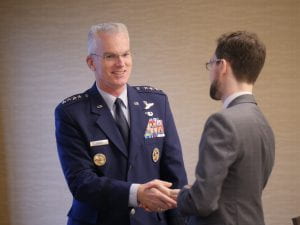Top U.S. general warns Iran to steer clear of U.S. interests by Wesley Morgan of Politico
The vice chairman of the Joint Chiefs of Staff said Tuesday the United States wouldn’t mount a unilateral military response against Iran for the attacks on oil tankers in the Gulf of Oman unless U.S. forces or interests in the region are targeted.
Any military response to the tanker attacks would “require an international consensus before military force is used,” Air Force Gen. Paul Selva told reporters, echoing earlier remarks by acting Defense Secretary Pat Shanahan that the U.S. government is focused on building international consensus in the wake of the tanker attacks.
But “if the Iranians come after U.S. citizens, U.S. assets or U.S. military, we reserve the right to respond with a military action, and they need to know that,” Selva said. And that’s the case even if an attack on U.S. troops comes through “surrogates,” he warned, a reference to Iranian-backed militias in Iraq, Syria, Yemen and elsewhere.
Although Iran is “lashing out against the international community,” the Iranians “haven’t touched an American asset in any overt attack that we can link directly to them,” Selva said
Still, over the weekend, the Pentagon claimed Iranian-backed Houthi rebels had shot down an unmanned U.S. Reaper drone in Yemen earlier this month with what the Pentagon alleged was an antiaircraft missile supplied by Iran.
“The Iranians believe that we won’t respond, and that’s why we’ve been very clear in our message, Selva explained.
“Our history in the region is we have threatened to respond and not responded. It would be a miscalculation on the part of the Iranians to believe that that’s going to persist,” he warned, describing the message the U.S. is trying to impress upon Iranian leaders through the deployment, public messages and the messages through Swiss and Iraqi intermediaries.
Much remains unknown about the attacks, Selva acknowledged. For instance, if Iran indeed conducted them, how did Iranian forces pick the tankers to attack? One of the vessels was Japanese, and the incident occurred as Japanese Prime Minister Shinzo Abe was visiting Iran.
Iranian forces may have singled out a Japanese tanker, Selva said, to send a message to Japan — or they may simply have picked the tankers nearest their patrol craft.
“I don’t know which one it was, and I’m not sure the intelligence community will ever be able to tell us which one it was,” the general said.
Also unknown is who in Iran authorized the attacks, if indeed Iran conducted them, Selva said.
“The evidence points towards Iran,” Selva told reporters. “The only perpetrator in the area that has a motive to perpetrate it is Iran.”
“The Iranian regime has been under significant pressure both economically and politically to come to the table to negotiate a deal on nuclear weapons and malign activities,” Selva said. “They are lashing out.”
The main evidence of Iran’s role in the latest tanker incident is the speed with which Iranian sailors removed an unexploded limpet mine from 1 of the 2 tankers after the attacks, the general explained. “The fact that they were able to quickly and safely remove a mine from the side of a ship would indicate it was of their own design, of their own emplacement, and they took it into their custody so that it wouldn’t be available as evidence that they perpetrated the attack.”
“Getting alongside a vessel under cover of darkness to attach a mine underway is not an insignificant effort,” he added. “It was done by a military trained and capable … Somebody intended to affect the movement of oil through the Strait of Hormuz.”
Selva’s remarks to reporters came the morning after the Pentagon announced the deployment of another 1,000 U.S. troops to the region in addition to the 1,500 sent last month along with an aircraft carrier strike group and a unit of B-52 bombers.
The new forces are being sent to help protect U.S. troops in Iraq and Syria from possible future attacks by Iranian-backed militias, he said.
“We have to be cautious that we respond only as appropriate, so what we have done is deploy to the region forces that allow us to beef up the defenses of our own forces,” Selva explained.
Among the new troops, he noted, will be “surveillance and reconnaissance” assets that can help warn of attacks as well as units “that can respond if required to an attack against our forces.”
The earlier deployment also included Patriot antiaircraft missile units and fighter jets.
Original article can be found here.
Other articles:
Military.com: F-35 Pilot Killed in April Crash May Have Ignored Aircraft Instruments: Selva
Bloomberg: North Korea Missiles Still Lack Capabilities, U.S. General Says
USNI News: Selva Urges More Nations to Help Maintain Middle East Freedom of Navigation
DoD News: Global Integration Deserves More Attention, Selva Says
Defense News: Don’t expect the US to secure Arabian Gulf shipping alone, a top general says
Air Force Magazine: Selva: SCO Needs to Support Combatant Commanders
National Defense Magazine: JUST IN: Dominance in Data Processing Key to Future of Warfare
Inside Defense: Selva concerned moving SCO into DARPA could crimp ideas, capabilities delivered to COCOMs
Space News: Top general says large constellations of satellites in low orbit could address key needs
Defense Daily: Joint Chiefs Vice Chair Goes To Bat For Low-Yield Nukes As Debate Picks Up On The Hill
The United States announced the need for low-power nuclear weapons to deter Russia
The United States called the condition of the use of force against Iran
Breaking Defense: General Unveils Key New Details of Attacks in Gulf of Oman
Al- Monitor: US lines up partners to protect oil tankers after Gulf attacks
The Wall Street Journal: U.S. Wants Allies to Help Keep Oil Lanes Open
The Washington Post: Trump characterizes alleged attacks by Iran on tankers as ‘very minor’



